As wellness and nutraceutical demand accelerates worldwide, Reishi mushroom extract continues to play a central role in immune-support and adaptogenic product categories. In 2025, buyers across global markets can expect significant shifts in sourcing strategies, pricing models, certification standards, and supplier expectations. This article explores key trends shaping the Reishi extract landscape and what buyers should prioritize.
1. Rising Demand for Premium-Grade Extracts
Consumers are becoming more informed and demanding higher efficacy from mushroom-based supplements. This is pushing brands to work closely with certified bulk Reishi extract supplier networks to ensure product integrity. Buyers should expect increasing demand for dual-extraction products rich in polysaccharides and triterpenes, driving up sourcing competitiveness.
2. Certification as a Market Differentiator
Third-party verification will become an industry baseline rather than a bonus. For those in Reishi extract for supplement manufacturing, certifications like USDA Organic, GMP, and ISO will be mandatory for accessing premium retail platforms, especially in North America and the EU. Buyers must evaluate supplier readiness for regulatory audits and sustainable certifications.
3. Consolidation of Suppliers and Pricing Pressure
Supply chain disruptions over the past few years have led to mergers and consolidations in the herbal extract industry. As a result, buyers seeking to buy Reishi extract powder wholesale may encounter fewer but more structured suppliers, with formalized pricing tiers, MOQs, and bulk contract commitments.
This will reduce informal market negotiations and increase expectations for contractual reliability, long-term agreements, and transparency in costing breakdowns.
4. Strategic Sourcing from China
China remains the global leader in mushroom extract production. However, working with a China Reishi mushroom extract factory in 2025 will require more due diligence than ever. With new environmental and trade regulations in place, foreign buyers will need to audit compliance with ISO 22000, HACCP, and FDA registration.
Increased enforcement of clean-label policies means factories must provide data transparency, full traceability, and detailed COA documentation.
5. Sustainability and Organic Procurement
More brands are aligning with eco-conscious consumers by prioritizing organic Reishi dual extract for export. These products meet both health efficacy and environmental responsibility criteria. Expect greater availability of certified dual-extract products, though they may carry a premium price.
Buyers should factor sustainability reporting, packaging materials, and farming certifications into supplier evaluation frameworks.
6. Evolving Global Compliance Landscape
In 2025, ingredient imports will face greater scrutiny. Brands distributing Reishi extract across continents will need to comply with shifting norms from the FDA (U.S.), EFSA (EU), Health Canada, and ASEAN markets. This reinforces the importance of documentation readiness, including technical dossiers, MSDS, and GRAS or novel food applications.
Conclusion
The global Reishi extract market in 2025 presents both opportunities and complexities for buyers. Whether you are expanding your product line or launching a new brand, staying ahead of sourcing trends, certification requirements, and supplier practices is essential. By building partnerships with transparent, certified, and forward-thinking suppliers, brands can gain competitive advantage and long-term customer loyalty.
Read More:
Reishi Mushroom Extract: A Growing Opportunity in the Functional Ingredient Market
Hangzhou Molai Biotech Co., Ltd has supply capacity 1200+ tons per year for mushroom powders and extracts, including the mushroom mycelium from modern technology of Deeply Liquid Fermentation and fruiting bodies from the grown real mushrooms to meet the different markets.
Hangzhou Molai Biotech Co., Ltd supplies the products both in Powders and Extracts for commercial using worldwidely, such as Cordyceps Sinensis, Cordyceps Militaris, Maitake Mushroom, Lion’s Mane Mushroom, Turkey Tail Mushroom, Reishi Mushroom, Chaga Mushroom etc.
We offer OEM and ODM services, could extract the products according to your special requirements, process the powders/extracts into Capsules, Tablets, Small Bags, Mushroom Bars, Mushroom Coffee etc.
Organic Lion's Mane Mushroom Extract
Organic Reishi Mushroom Extract
Organic Cordyceps Militaris Extract
Organic Turkey Tail Mushroom Extract
Organic Chaga Mushroom Extract
Organic Shiitake Mushroom Extract
Organic Maitake Mushroom Extract
Organic Tremella Mushroom Extract

_DgdJKw.jpg)




